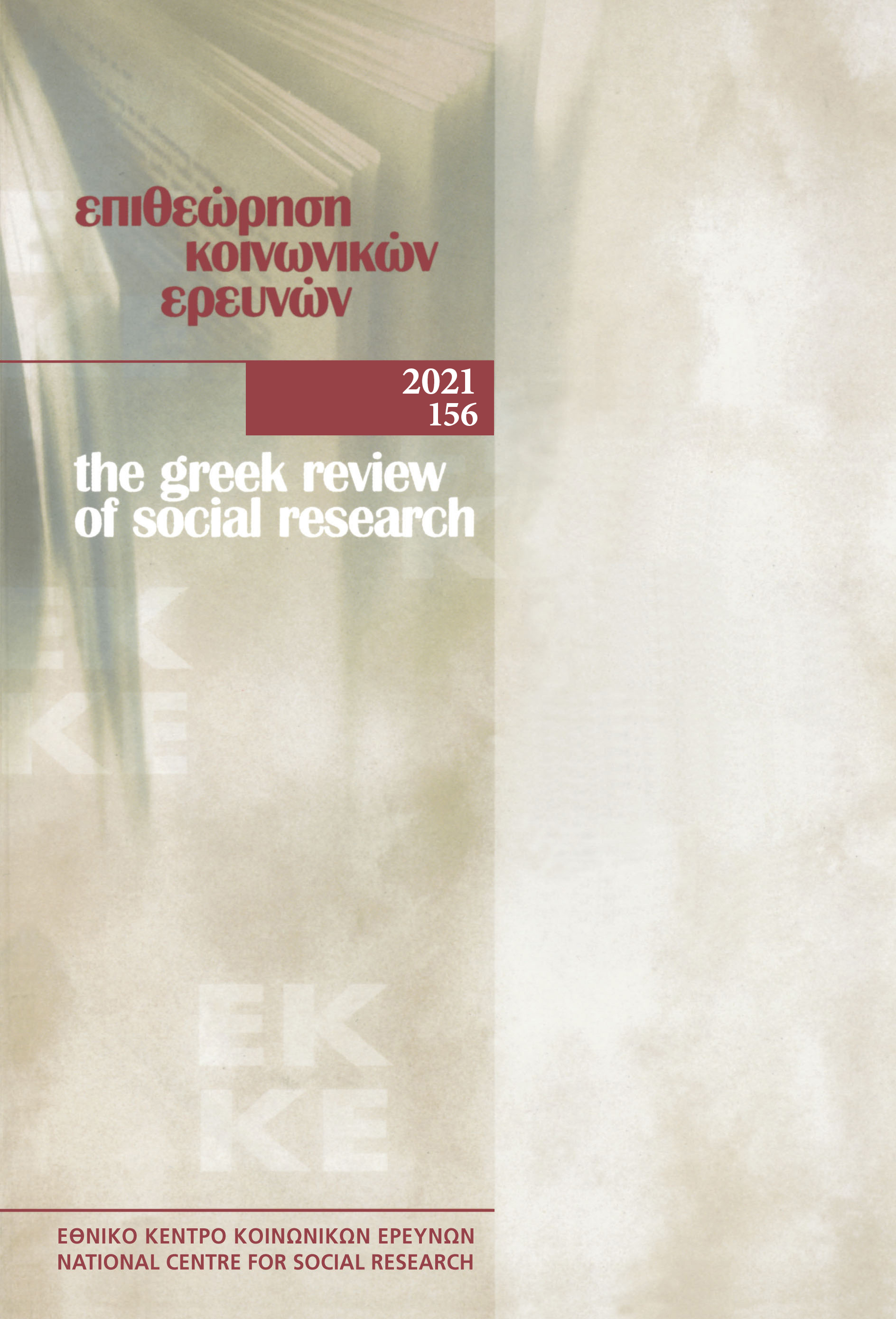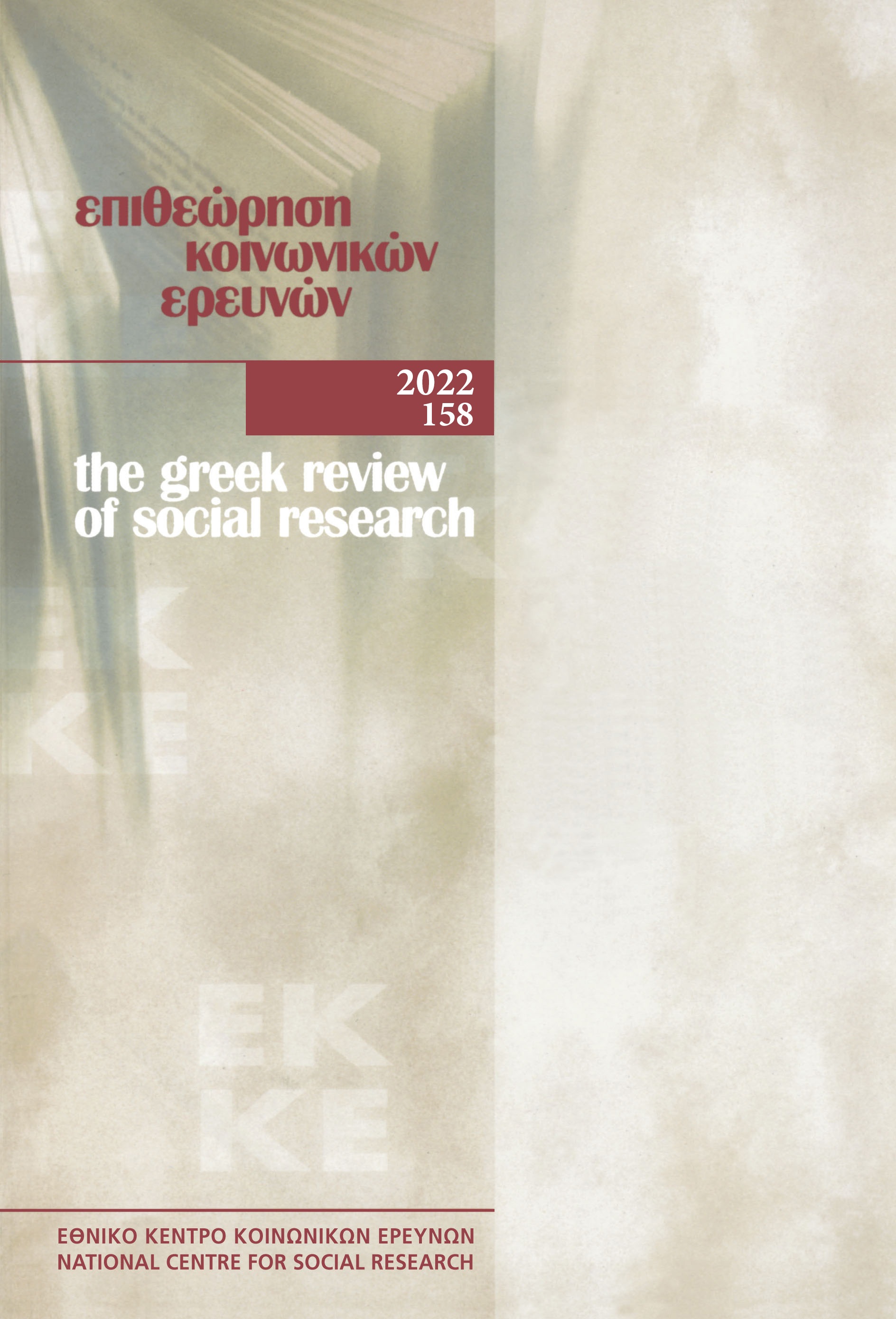Crisis and memory: Exploring social aspects of the economic recession in the scientific literature and oral narratives

Abstract
The article proposes a broader understanding of crises as primarily social phenomena and focuses on the discursive dynamics of the Greek crisis. The methodological approach lies in the comparative analysis of the discourses about the “crisis” as an analytic category and social phenomenon, focusing on the convergent and/or divergent experiences of informants and the related literature regarding the different social/economic aspects of the crisis. To analyze the discourses generated by the Greek crisis, we examine the literature that focuses on the multifaceted impact of the crisis on daily activities, while in parallel we also benefit from the interviews conducted by the Oral History Groups to understand how the discourse about the crisis is shaped by the inherent characteristics of the Greek society and the social awareness of its members.
Article Details
- How to Cite
-
Souyioultzoglou, I., & Angelaki, M. (2021). Crisis and memory: Exploring social aspects of the economic recession in the scientific literature and oral narratives. The Greek Review of Social Research, 156, 87–117. https://doi.org/10.12681/grsr.25948
- Issue
- 2021: 156
- Section
- Articles

This work is licensed under a Creative Commons Attribution-NonCommercial 4.0 International License.
Authors who publish with this journal agree to the following terms:
- Authors retain copyright and grant the journal right of first publication with the work simultaneously licensed under a Creative Commons Attribution Non-Commercial License that allows others to share the work with an acknowledgement of the work's authorship and initial publication in this journal.
- Authors are able to enter into separate, additional contractual arrangements for the non-exclusive distribution of the journal's published version of the work (e.g. post it to an institutional repository or publish it in a book), with an acknowledgement of its initial publication in this journal.
- Authors are permitted and encouraged to post their work online (preferably in institutional repositories or on their website) prior to and during the submission process, as it can lead to productive exchanges, as well as earlier and greater citation of published work (See The Effect of Open Access).



